What are the stakes of national teams that can qualify for the upcoming 2023 AFC Asian Cup?
By the end of summer 2021, already twelve national teams have qualified for the upcoming Asian showpiece so far. With the hosts, China, as an exception, the remaining twelve are Qatar, Syria, Iraq, South Korea, Australia, Saudi Arabia, Vietnam, Lebanon, Oman, Japan, the United Arab Emirates and Iran. These teams are on their last ditch to take spots for the 2022 World Cup held in Qatar as well.
For teams that could not make it to the World Cup, the Asian stage in China offers them another opportunities. The Asian Cup qualifiers have also been cut short, instead of a round-robin two legs format, it is now just a single group stage one leg to play for. Of course, this also reduced a great amount of intensity, but that doesn't mean teams are willing to miss the cakes.
The qualification stage will be defined in six groups, each comprises four teams. The winners of these groups will progress to the Asian Cup directly, alongside the five best of six runners-up teams as well. Only eleven remainders will join the prestigious Asian stage in China - and this is something worth wondering.
So, we will try to assert teams in there to see how high their chance of qualifying.
Group A
The group is the affair of four teams: Jordan, Kuwait, Indonesia and Nepal. The host of this group is the oil-rich Persian Gulf Kingdom Kuwait.
Jordan is generally viewed as the strongest team in the group, but this is only in paper when the group hosts, Kuwait, shares identical power to Jordan. In fact, these Arab opponents are familiar face in regional and even continental competitions.
 |
| Jordan and Kuwait promised to deliver an Arab rivalry in Group A. |
This is best seen in the recent second round of the 2022 WCQ, when Jordan and Kuwait failed to break the deadlock in either home and away fixtures, finishing goalless in process. Kuwait has more international achievement than Jordan, already claimed an Asian Cup title and played in one FIFA World Cup, and it can hope to rally this historical badges to clinch a direct place to China. However, Jordan has proven to be a tough nut and this will be a tight affair.
This leaves Indonesia and Nepal playing the role of underdogs. Though Indonesia has played in four Asian Cup, equalling that of Jordan, its last appearance dated back in 2007, when it was the host country. Indonesia's Asian Cup record has been abysmal, failing to progress in all four editions. No surprise that even with 2018 World Cup coach Shin Tae-yong in charge, there is no guarantee for Indonesia to qualify at all.
Nepal is even far worse when it has never played in an Asian Cup, and its squad has no big name except for Bimal Magar, who debuted for Nepal's senior side in the age of 14 and trained in Belgium's prestigious Anderlect academy. Magar is a spectacular magician but surely one bird can not bring spring, so Nepal's only hope is to gain experience at best.
Group B
The group is pretty contested when three recent Asian Cup participants: Palestine, the Philippines and Yemen, joining the bandwagon with the weakest team in the group by far, the hosts Mongolia.
While Palestine is seeded Pot 1, it is actually not better than the Philippines or Yemen. Recent results have largely indicated that assertion and can create a fascinating trio campaign.
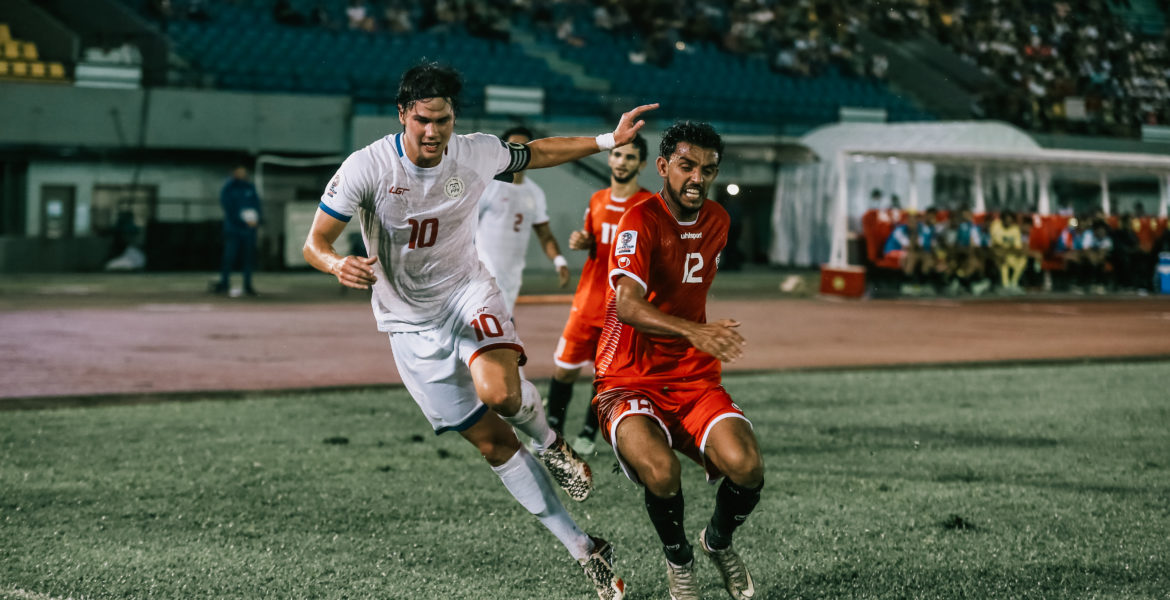 |
| Philippines vs Yemen during the 2018 FIFA World Cup qualifiers in Manila. Yemen won 1-0 in that fixture. |
The familiarities pit the Philippines and Yemen to meet for the second consecutive Asian Cup qualifiers - these two have met twice back in the previous qualifiers and all ended in draws. Meanwhile, the Philippines and Palestine have last met back in the decisive 2014 AFC Challenge Cup Final, where the Palestinians gained an emotional 1-0 win to book its Asian Cup debut in Australia. Palestine and Yemen have also clashed with each others in the 2022 WCQ, with both teams shared a win. These contests will likely to determine the fate of the group B, with only the winner and potential second-place winner to progress.
The final team in the group, hosts Mongolia, found itself in a pretty weak position. Promising aside, Mongolia, on its first track to develop a full-fledged professional football culture, will need more and more international experiences to enhance itself. The Mongols hope to replicate the miracle of the 2022 WCQ earlier though, with Mongolia gaining two wins in its maiden second round appearance, including a famous 1-0 triumph over 2019 Asian Cup participant Kyrgyzstan.
Rather interesting is the weirdness of the group B are deeply rooted by cultural and political differences. The Philippines were not a football nation until 2010, Mongolia only began to embrace football by 2020, while Palestine and Yemen's football are darkly hampered by wars.
Group C
The group itself welcomes hosts Uzbekistan and three travellers, Thailand, the Maldives and Sri Lanka.
This group probably has the easiest prediction by far, with the stark distance between the top two and bottom two. Uzbekistan and Thailand are two top teams in the group, hence qualifying for the Asian Cup is no big deal.
 |
| Thailand has played against Uzbekistan in a recent friendly in the UAE, suffering a 1-4 loss. The friendly was not a FIFA-sanctioned, hence not included. |
The Central Asians had suffered a setback when it was eliminated from the second round for the first time ever, losing 0-3 to Saudi Arabia away. The Asian Cup is probably the chance to redeem its value, and with some of Uzbekistan's growing bright stars emerging, notably Eldor Shomurodov, who is guided by José Mourinho in A.S. Roma, the Uzbeks are showing their seriousness in reclaiming its wounded pride.
Thailand may wish nothing more but a good draw in Tashkent, but the Thais should not feel worry about prospects of qualifying, considering Thailand has qualified the most Asian Cups for Southeast Asian region (6th) and is looking for a 7th. Under Brazilian tactician Alexandré Pölking, Thailand is slowly regaining its strength, evidenced by winning the regional 2020 AFF Cup. Thailand also has a major name to rival Shomurodov, the Japan-based Chanathip Songkrasin can be a real challenge.
South Asia's representatives the Maldives and Sri Lanka may wish to search for more experiences and to avoid become the goal baskets. However, it is hard to even think about such an outcome if these teams could not demonstrate the necessary displays.
Luckily, the Maldives and Sri Lanka have shown some slight progress. For the Maldives, the Maldivians clinched a good 1-1 draw to the Philippines; for Sri Lanka, the brightest games the teams performed were two last-stand against North Korea (lost 0-1) and Lebanon (lost 2-3), with the game against the latter saw Sri Lanka even scored a lead. But only these miraculous results could not change the reality that overcoming Uzbekistan and Thailand is an oxymoron for further future.
Group D
India is the host of the group, and the three others are Hong Kong, Afghanistan and Cambodia. This group is far more balanced.
India has just recently qualified for the 2019 Asian Cup, but was unfortunate to bow out of the tournament in last minutes. By far, India boasts as the team with most experience (four), compared to Hong Kong's three and Cambodia's one.
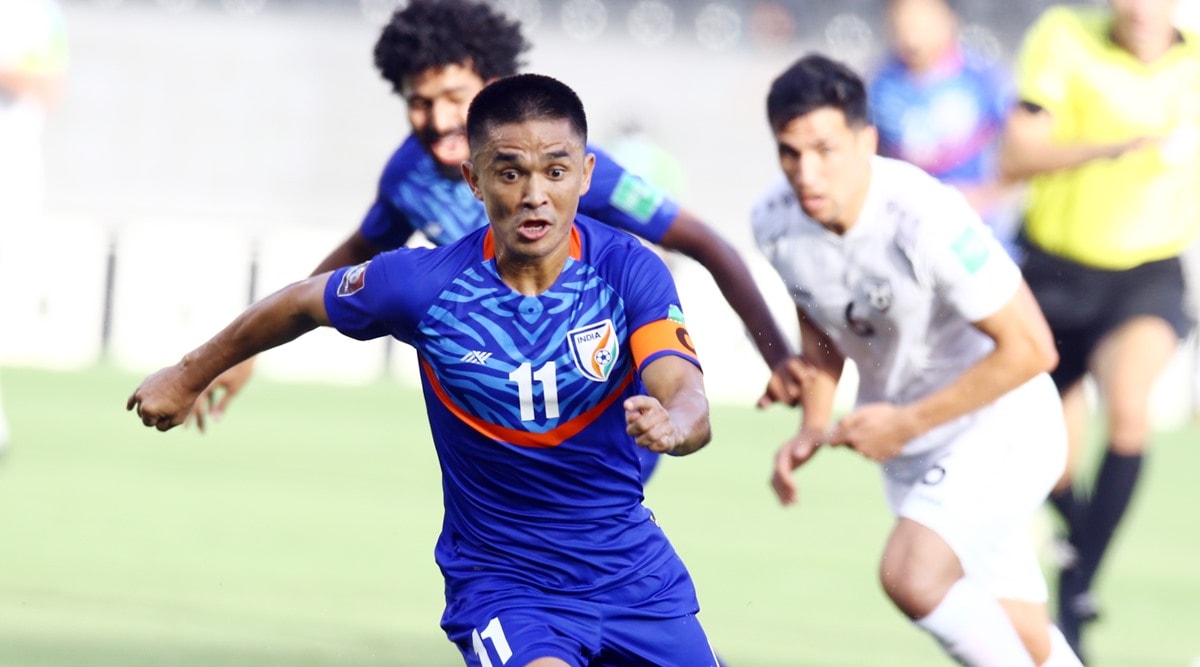 |
| India has drawn Afghanistan twice in the 2022 WCQ. |
India, though, has an unconvincing performance since the arrival of Croatian manager Igor Štimac. The former 1998 World Cup third place participant has, just like tenure with his home team as coach, struggled to find a recipe for India. It can impress with a draw against Qatar but can also fail to gain three points against Bangladesh and Afghanistan. The latter is also India's group opponent, and while the country's football future uncertain due to political turmoil, the country can still hope to aim for a maiden Asian Cup debut. Unfortunately, without facilities to stage their own trainings, this takes a total miracle.
Hong Kong is eager to search for their first Asian Cup since 1968. By coincidence, just like India-Afghanistan, Hong Kong shared a common second round group in 2022 WCQ with Cambodia. The Hong Kong side won one and drew one, and is hoping to end its streak of failing to qualify for the aim of an Asian Cup spot. Cambodia is also desperate to find a place for the 2023 Asian Cup, the country's first and only Asian Cup appearance in 1972, which it finished fourth. However, the current squad could not promise to demonstrate the same form, Cambodia is investing billions for its youth but results are not that promising to expect. Cambodia is led by former Japanese World Cup player Keisuke Honda, but since he is currently doing both the dual player-coach job alike, to even guide Cambodia is for us to guess.
Group D is full of everything, from unstable form of India, tragedy of Afghanistan, thirst of Hong Kong and comical Cambodia to wait in Kolkata for summer showdown.
Group E
Within this group has Bahrain, Turkmenistan, Malaysia and Bangladesh in the same party. Of course, the Malaysians are proud to host it - the country is also the home of the AFC headquarter itself.
While Bahrain and Turkmenistan maybe sitting on top by Pot seeding, Malaysia is definitely not for joke at all.
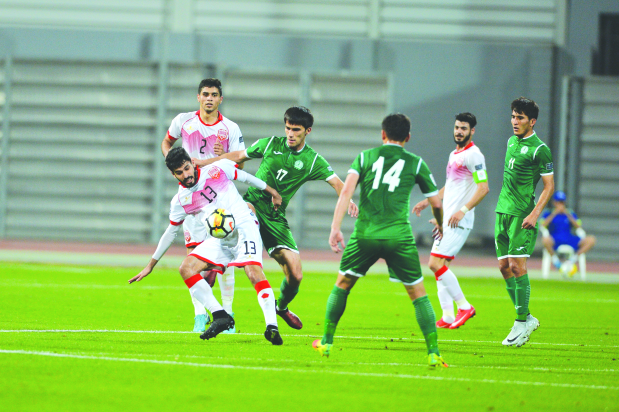 |
| Bahrain blitzed Turkmenistan 4-0 back in the 2019 Asian Cup qualifiers in Manama. |
Bahrain and Turkmenistan have just participated in the latest Asian Cup edition in 2019, however, only Bahrain really impressed by far, reaching the last sixteen before losing to South Korea. Turkmenistan, meanwhile, has been disappointing at best - losing all three encounters in the group stage. This made Turkmenistan more a target for Malaysia to leapfrog above.
Bahrain's merits back in 2019 Asian Cup helped establishing the team as the strongest in the group, and it is also reinforced by a string of regional glories (winning both the 2019 WAFF Cup and Gulf Cup) but fell short from qualifying for the 2022 World Cup, though this included a 1-0 win over Iran.
For Turkmenistan and Malaysia, fighting for second place is possible. Both Turkmenistan and Malaysia have never progressed beyond the group stage of Asian Cup and these two nations have also shown only slight progress in the recent 2022 WCQ. Probably, this game will be a do-or-die business that neither the Turkmens or Malaysians can accept to lose, the latter has even more to say for being the home team.
Bangladesh will head to Malaysia as the lowest-ranked team in the group. For Bangladesh, the country has experienced a massive football renaissance under Jamie Day's tutoring (which began with a famous 2018 Asian Games campaign of the youth side), but the Englishman won't follow the team this time, the job is given to Spaniard Javier Cabrera.
It's too early to state Bangladesh will go further, but the Bangladeshis will have pride to play for. Since qualifying to the only Asian Cup in 1980, the country is more concentrated to cricket, so football revival is a good thing. However, once Bangladesh can be truly itself, it will be a formidable opponent.
Group F
Central Asian representatives Kyrgyzstan and Tajikistan will join the group with Southeast Asian representatives Myanmar and Singapore. And this is probably not so hard to understand who shall progress.
Hosted by Kyrgyzstan, the team and her neighbour Tajikistan are definitely worth trying for a spot to the 2023 Asian Cup in China. They have just met each other in two consecutive WCQs, each share a win and two others being draws.
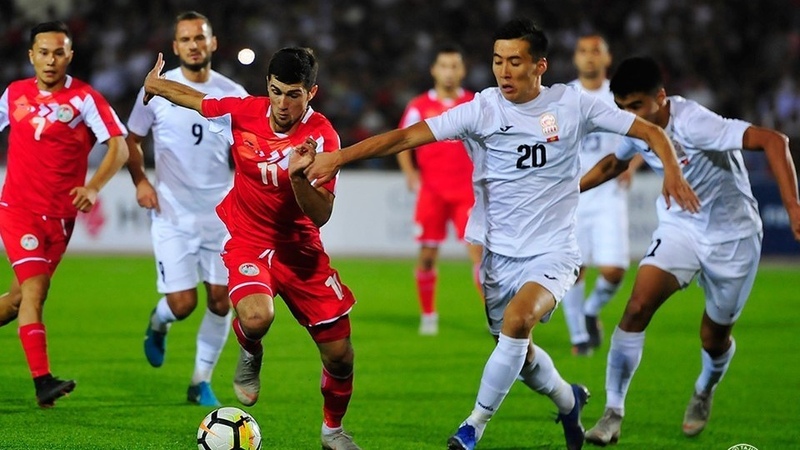 |
| Kyrgyzstan was beaten 0-1 away by Tajikistan in Dushanbe during the 2022 WCQ. |
For these former Soviet states, football has always been a big affair. However, while Kyrgyzstan has appeared in one Asian Cup, Tajikistan has surprisingly been absent from the grand stage of Asia, five playoffs saw Tajikistan ended up losing both bets. The Tajiks are hungry to fulfil its missed goal. This could be the chance for Tajikistan to show the world its upcoming golden talents, comprising of players that took part in the 2019 U-17 World Cup in Brazil, was something to cheer about. For Kyrgyzstan, after qualifying for the Asian Cup, Kyrgyzstan will need to make a second appearance if it still thinks about sparking a greater football fever.
While Kyrgyzstan and Tajikistan are taking headline, Myanmar, which shared the same group with the Central Asians in 2022 WCQ, will arrive with less enthusiasm. Affected by turmoil at home, many Burmese football stars have either refused call-ups or joined widespread civil resistance against the junta. Myanmar has appeared in just one AFC Asian Cup, back in 1968 when it finished second, but nothing could be said the same with a squad severely depleted.
Singapore will also appear to be the next dark-horse in the group. Singapore has shown signs of promising performance, but note that Singapore's only Asian Cup appearance was in 1984 as hosts, to qualify by itself is far less ideal for the Singaporeans. Though it has done well in the regional AFF Cup, but AFF Cup is not Asian Cup.
Which teams shall take parts will need to be driven by circumstances, and all the best will come to them.
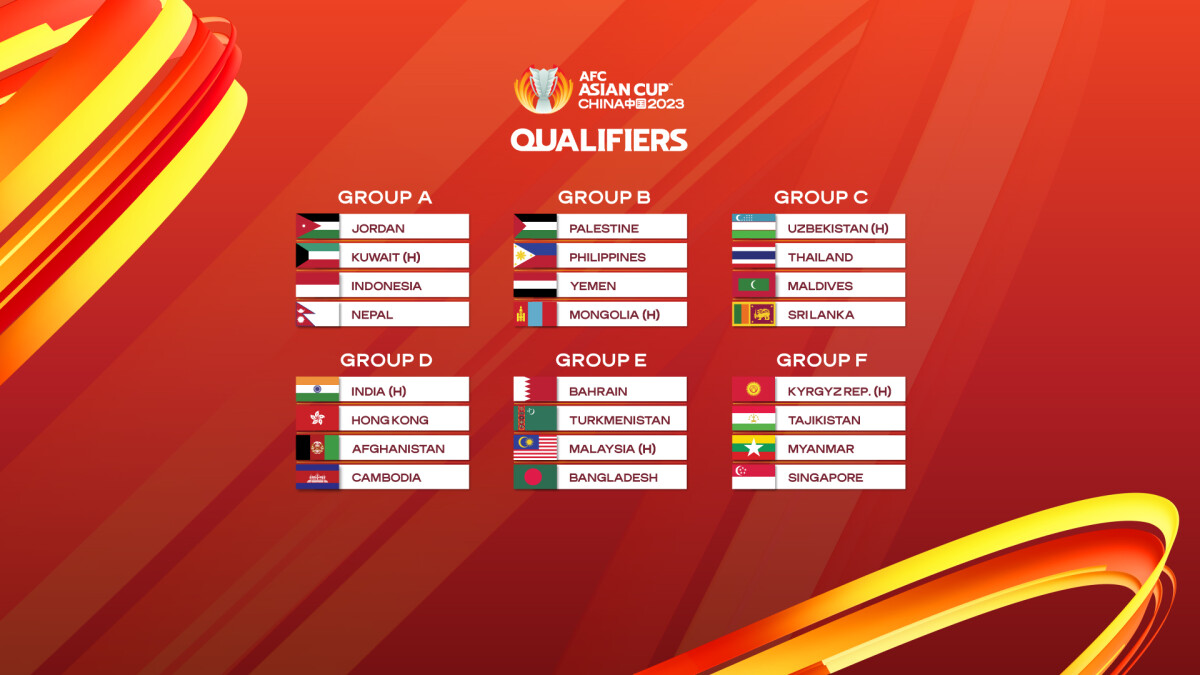
Comments
Post a Comment